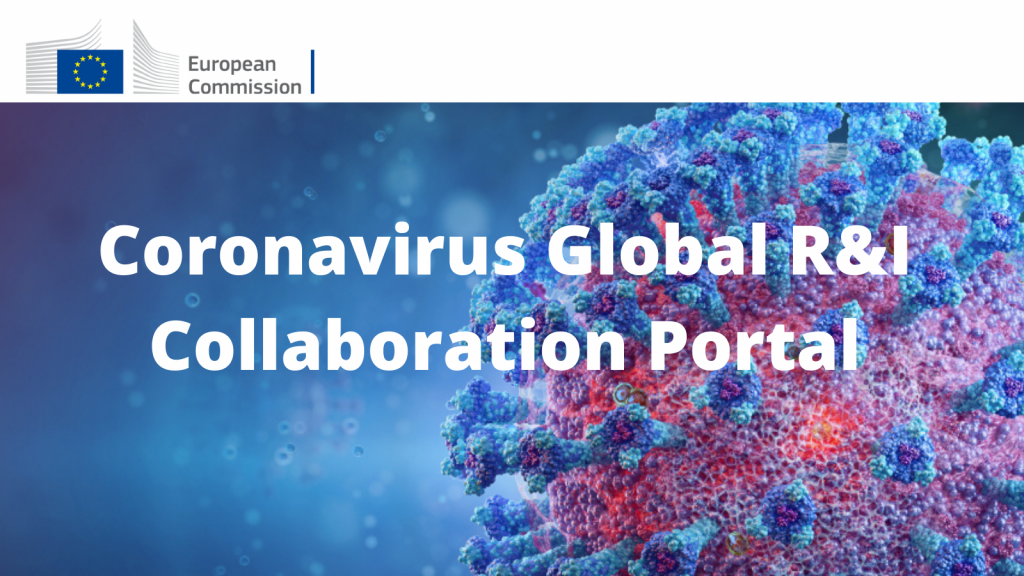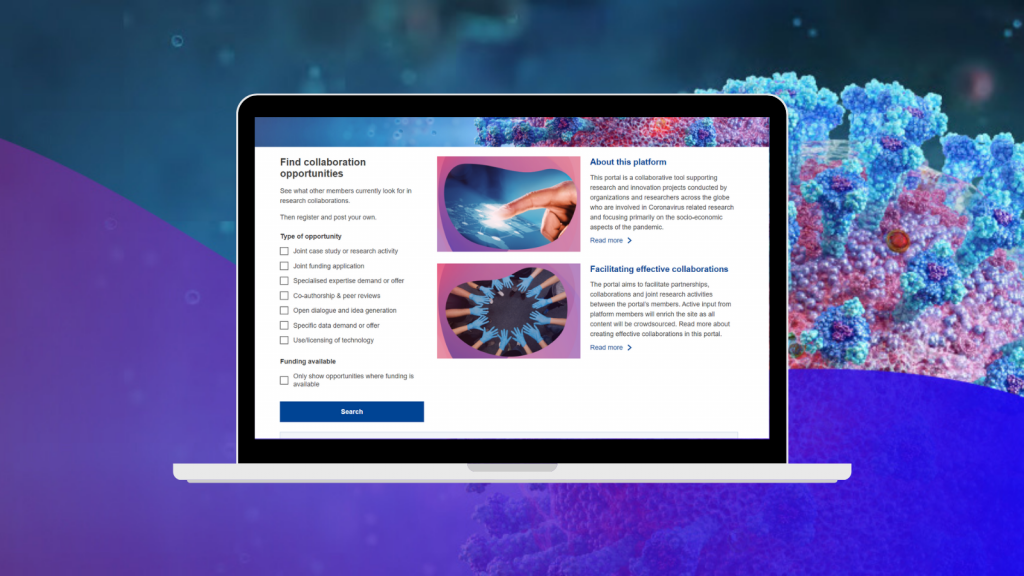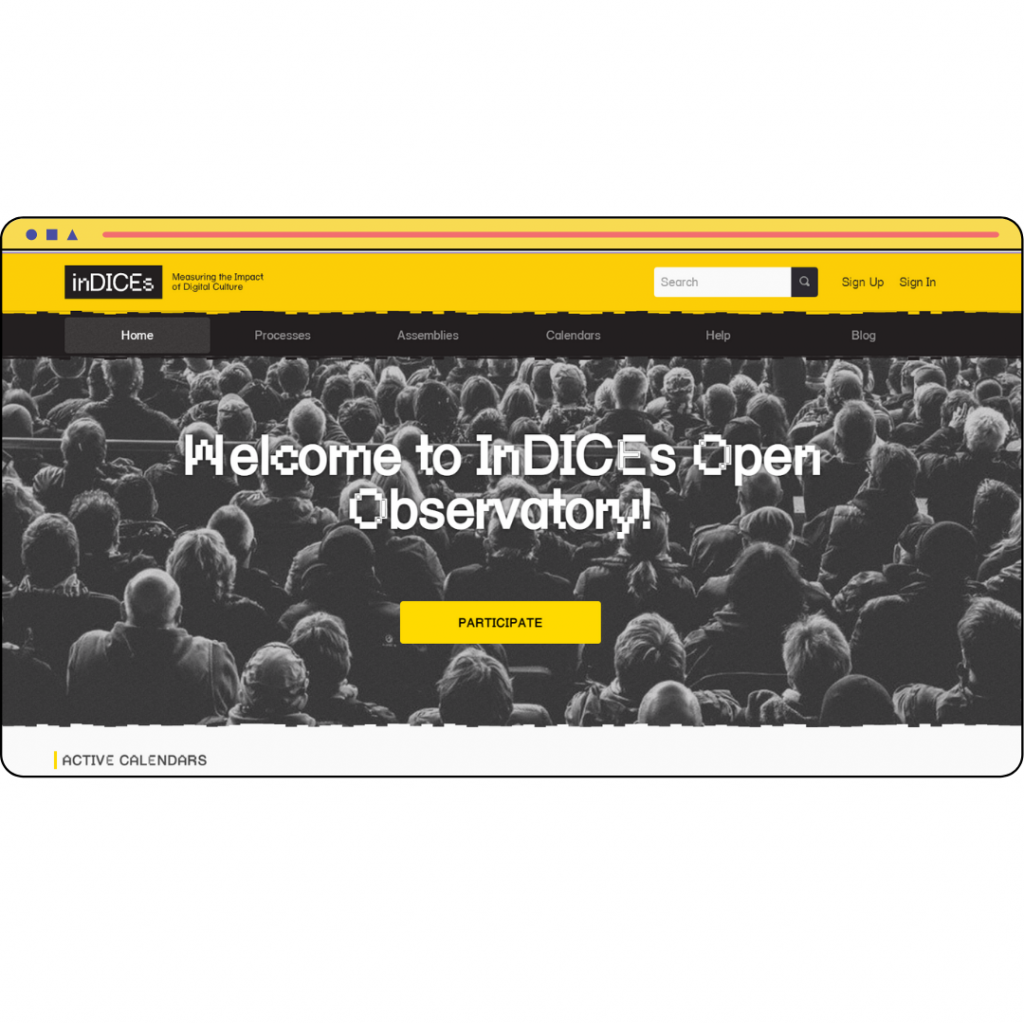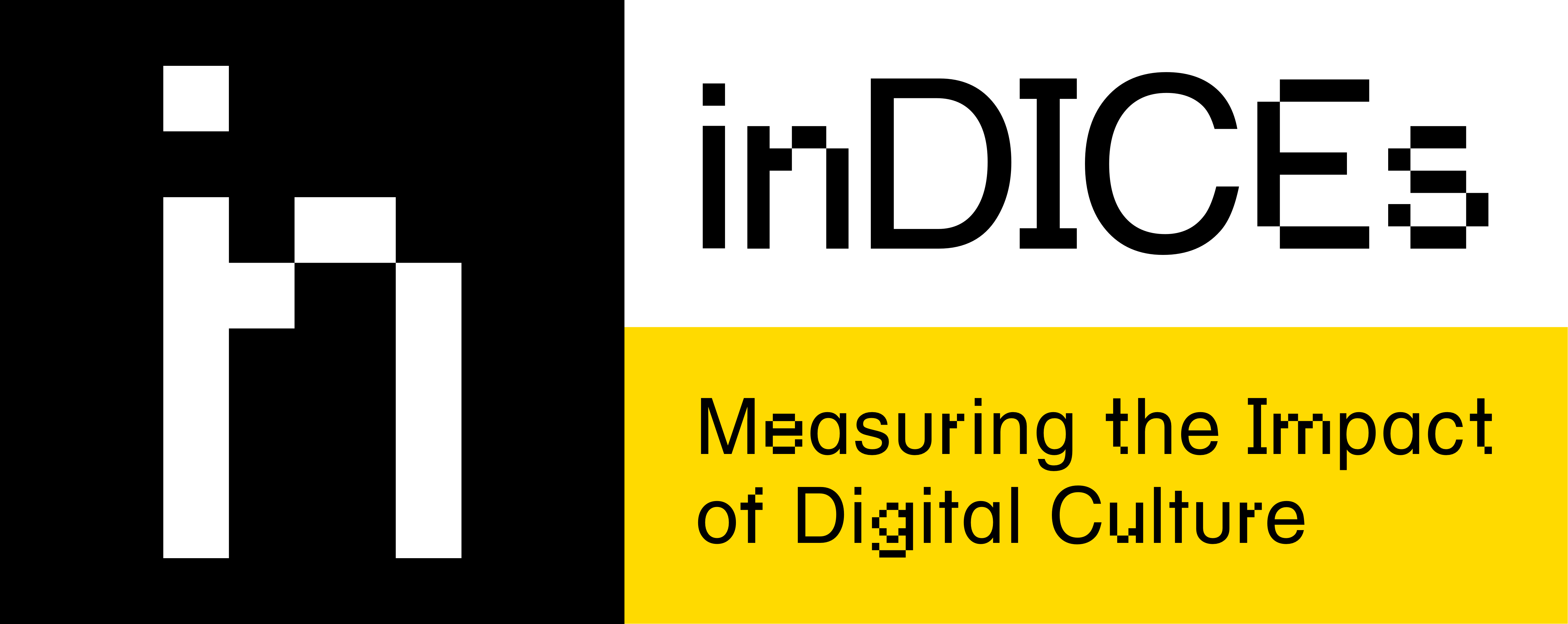On October 14, 2021 inDICEs was invited by the European Commission and the Coronavirus Global R&I Collaboration Portal to participate in the online seminar on “Empowering R&I collaboration to respond to the socio-economic challenges of the coronavirus pandemic”. inDICEs was introduced under the session on “Culture and Arts” by dr. Maria Tartari (IULM, FBK).

The online seminar served as an opportunity to launch, at an international level, a Global Portal related to the socio-economic aspects of the Coronavirus pandemic. The “Coronavirus Global R&I Collaboration Portal” works as a digital hub that presents various similarities with the inDICEs project’s features and objectives, such as: ensuring exclusive networking opportunities with other researchers and organizations, and worldwide visibility to an ever-expanding portfolio of researchers, professionals, and practitioners. This makes it easier to find collaboration opportunities and to form partnerships with other members that share similar areas of expertise and aspirations.
The virtual meeting, conducted by Maria Cristina Russo, Director for Global Approach and International Cooperation in R&I at European Commission, garnered international interest not only around the issue of the pandemic but also around the importance and the necessity for virtual international hubs to function as collectors for empowering research on specific joint struggles. What emerged from the seminar, in response to the Coronavirus outbreak, is the necessity to face future challenges with an intersectoral approach, that can be supported and implemented by the creation of virtual communities and networks that can help researchers and practitioners to make their efforts impactful, and to get out of a monological dimension.

inDICEs contributed to the debate by emphasizing how this challenge has been embraced by the gazes of innovators from the cultural and creative sector, and how it opened the debate on the importance of overpassing the traditional regimes of cultural production, and also on the development of new strategies of proper management of digital heritage assets and of their digital communities. inDICEs is joining this challenge by developing a methodology, supported by a wide part of data gathering and analysis, that will provide tools for measuring the widespread impact of the digital revolution in the cultural heritage sector, in order to be a guide for its future evolution to further support the investment in digitization and the creation of frameworks for accessible and reusable cultural assets.
Lockdowns & digital content production
If we can learn a lesson from the pandemic, it is that virtual users and citizens have survived closed in their homes also thanks to the nourishment of cultural content digitally disseminated by the social platforms. Indeed, inDICEs research task force has registered an acceleration in the digital content production and in the followers’ growth for the CHIs. During the lockdowns, the dialogue between the need for cultural content has strengthened relations between the traditional cultural producers, namely the CHIs, and the contemporary virtual prosumers, the digital users, producing results that are still immature and disorganized; otherwise, these outcomes may be of great importance for the impact that can generate, whether monitored, analyzed, understood and turned into policy suggestions. Digitized Culture is not a niche asset and needs to be embedded in fundamental strategies of development, given its important role in influencing human resilience. Digital Heritage assets in the economic dimension can be inspiring and accelerate new forms of digitally-empowered crossover business models based on co-creative, holistic and circular practices, with a relevant competitive advantage. Digital Heritage can impact social well-being, rebuilding communities, and not only redeveloping classical strategies to boost networks.

That’s why inDICEs is building the Open Observatory, a portal that is aimed at informing CHIs, researchers, policy-makers, and practitioners on the importance of enabling communities to take up the role of managers of their cultural commons by offering them the digital tools to do so. Don’t miss the chance of being network societies and learning organizations: innovation comes from outside and comes from below up!


